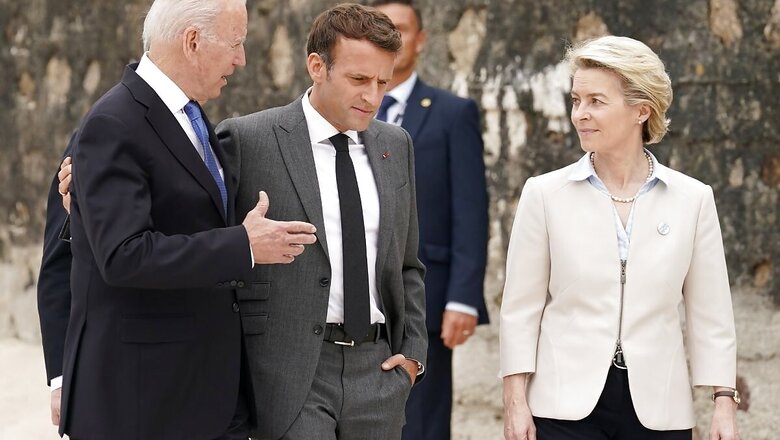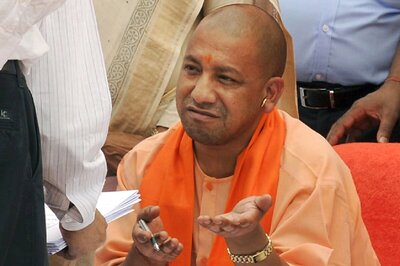G7 Cannot Address Global Issues on Its Own. To Counter China’s Disruptive Ambition, World Needs Quad

views
The G7 meeting at Cornwall has received great publicity, largely because of the re-assertion of international leadership by the Biden Administration and a radical change in the atmosphere of negotiations, in stark contrast with the 2018 summit which saw Trump hectoring the other six countries on their trade policies, reneging on the agreed summit communiqué and making personal attacks against the Canadian Prime Minister.
The serious differences between the US and the rest on the issue of climate change because of Trump’s agnosticism on the subject of central international concern put a lot of strain on the group. Trump’s National Security Adviser at the time spoke disparagingly about the G7 as just another meeting “where other countries expect America will always be their bank”. Trump also treated the G7 as an obsolescent group and questioned the exclusion of Russia from it in 2014.
How Relevant is G7?
For a long time now the relevance of G7 as a kind of financial management directorate of the world has been widely questioned. The group, set up almost four decades ago, with five countries to begin with and then expanded to seven to include Canada and Italy, has as members only western countries barring Japan, and represents a world that has radically altered economically and politically over time, with dispersal of economic and political power with the rise of China, India, Brazil and others.
The West, led by the US, is still a powerful global force no doubt, but it can no longer dictate global policies unilaterally, though it can still set the direction and agenda in many areas in an internally coordinated manner, especially through western-dominated institutions, such as the World Bank, the IMF, the Asian Development Bank (ADB), and some existing multilateral financial coordination mechanisms.
There is pressing demand at the international level that the existing international political and economic institutions must reflect the shifts in global political and economic power. The functioning of the UN Security Council with its veto mechanism is questioned in the interest of more democracy and less privilege. The principle of reform of the international institutions is widely accepted though introducing needed reform has proved difficult in practice. In this background, the G7 that is rooted in western power and privilege seems an anomaly.
This recognition that the G7 was a narrow base to handle, in particular, global financial issues came after the 2008 financial crisis, which then led to the emergence of the G20 as a forum of the world’s largest economies, a more representative group that includes India, China, Russia, Brazil and South Africa (BRICS), and one that is considered indispensable for solving global issues now and in the future.
The PWC report projects that emerging markets could grow twice as fast as G7 economies on average, and six of the seven largest economies in the world would be the emerging economies in 2050, with India as the second largest economy behind China. The EU27’s share of the world GDP could fall below 10 per cent by 2050. The UK could be in 10th place then, France out of the top 10 and Italy out of the top 20. This underlines the need to broaden the base of international consultations to deal with international governance in general. The G7 in its communiqué has reaffirmed its commitment to multilateralism and to working with the G20, UN and wider multilateral system.
Cooperating & Competing with China
China is today the second largest economy in the world and India the fifth largest. EU’s trade with China now surpasses that with the US. China is the biggest trade partner of the US and so is the case with Japan. The ASEAN (Association of Southeast Asian Nations) too has become China’s largest trade partner. Many key challenges that the world faces require wider and deeper cooperation at the international level, be it climate change, green energy, environment, biodiversity, terrorism, least developed countries issues, and now more than ever before health because of the pandemic. The last has shown that no country can now be an island unto itself and protect its security with a massive defence capability. This again underlines that the G7 despite all the visibility it has got is not in a position to address global issues on its own, though it can act as a catalyst in terms of analysis, ideas, technology, economic and financial resources, media influence.
The G7 summit has recognised the crucial importance of combating the pandemic. Its communiqué devotes several paragraphs committing the G7 to end the pandemic by “driving an intensified international effort … to vaccinate the world by getting as many safe vaccines to as many people as possible as fast as possible … by increasing and coordinating on global manufacturing capacity on all continents”. It recognised that ending the pandemic in 2022 will require vaccinating at least 60 per cent of the global population, and the G7’s international priority is to accelerate the rollout of safe and effective, accessible and affordable vaccines for the poorest countries. This would be welcomed by India as we are in a position to help achieve this objective.
China figures directly and indirectly in the G7 communiqué, indicating that the US has succeeded to some degree to overcome the hesitations of some major EU countries like Germany and even France to have their autonomy in dealing with the China challenge diluted. They would like to establish their own balance between cooperating, competing with and confronting China.
The communiqué hits at China indirectly in the reference to forced technology transfer, intellectual property theft, lowering of labour and environmental standards to gain competitive advantage, use of forced labour in global supply chains, market-distorting actions of state-owned enterprises, and harmful industrial subsidies, including those that lead to excess capacity. In terms of securing supply chains, the G7 recognise the foundational role that telecommunications infrastructure, including 5G and future communication technologies, plays and will play in underpinning their wider digital and ICT infrastructure, which will promote secure, resilient, competitive, transparent and sustainable and diverse digital, telecoms and ICT infrastructure supply chains.
The reference to promoting shared values as open societies in the international system, as reflected in the Statement on Open Societies signed with the leaders of countries from the Indo-Pacific region and Africa, namely, Australia, India, South Africa and the Republic of Korea, and committing to increase cooperation on supporting democracy also targets the challenge from authoritarian political systems.
The direct reference to China is contained in the decision to consult on collective approaches to challenging non-market policies and practices which undermine the fair and transparent operation of the global economy. While the G7 will cooperate where it is in their mutual interest on shared global challenges, but in so doing, it will promote its values, including by calling on China to respect human rights and fundamental freedoms, especially in relation to Xinjiang and those rights, freedoms and high degree of autonomy for Hong Kong enshrined in the Sino-British Joint Declaration and the Basic Law.
The G7 reiterates the importance of maintaining a free and open Indo-Pacific, which is inclusive and based on the rule of law, underscores the importance of peace and stability across the Taiwan Strait, and encourages the peaceful resolution of cross-Strait issues, expresses serious concern about the situation in the East and South China Sea and opposes strongly any unilateral attempts to change the status quo and increase tensions. All these references to China, direct and indirect, are helpful from India’s point of view in taking cognisance of the mounting Chinese threat with which we are now confronted with more openly and durably.
What Sets Quad Apart
The Quad too, of which two are G7 members, shares similar concerns about China, but as in the case of the European component of G7 and their approach to China, the Quad members share an overarching view about the China challenge but have to cope with some realities as well, as the degree of political, economic, security and territorial issues that each has with China is not identical and each country within the larger framework of cooperation and coordination will have to find an individual balance. More so, as the Quad is based on shared interests and is not an alliance.
France is already active in the Indo-Pacific area; Germany is developing its own Indo-Pacific concept and so are the EU and the UK. There is thus a growing convergence in thinking about the realities of the China threat between India and the G7 members in general. The Quad and the Indo-Pacific concept are gaining strength and acceptance as part of the armoury against China’s disruptive ambitions.
Read all the Latest News, Breaking News and Coronavirus News here.




















Comments
0 comment